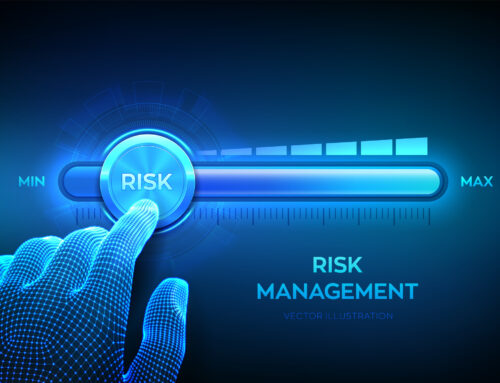
You have probably heard advice that looks something like this when it comes to retirement: As you approach retirement, you should shift your investments and investment strategy to be less risky. But what if that isn’t always the best advice? Are there situations where you can still be aggressive in your retirement investments as you approach retirement? What if high-risk, high-return strategies can improve your portfolio even a year or two into your retirement?
What we’re talking about is rethinking risk tolerance and how it relates to retirement. Risk tolerance is essentially how comfortable an investor is with losing some amount of their investment. If you’re okay with losing all of your investment for the chance at a big payout, you’re said to have high risk tolerance. If you’re okay with losing some of your investment for the chance at a moderate payout, you’re said to have medium risk tolerance. And if you don’t want to lose any of your investment and you’re okay with small payouts, you have low risk tolerance.[1]
Considering a high-risk financial strategy close to retirement? It really hinges on your unique circumstances. Young folks with plenty of time to invest and future earnings in the pipeline can often absorb more risk. Similarly, those with significant assets and the luxury of risk capital—money they can afford to invest without fretting over potential losses—may find they can still pursue aggressive investment strategies for high rewards as they approach retirement. If your diverse investment portfolio and retirement savings are more than enough to support your lifestyle, and you have extra cash to play with, it could make sense to look at higher-risk investments to potentially increase your wealth, diversify further, or meet other specific financial objectives, provided they’re in line with your overall financial plan and risk appetite.[1]
When does a low risk tolerance make sense? If your savings are modest and just cover your living expenses, high-risk strategies might not be the best fit. Essentially, if you’re just getting by, you can’t afford to risk any losses, so a conservative approach is preferable. If your retirement savings are sufficient for a comfortable life, veering towards high-risk investments suddenly might not be a wise move. Conversely, if you’ve saved diligently and your main goal is to protect your wealth for a relaxed retirement and to leave a legacy, then taking on significant investment risks might not be necessary. Ultimately, while the conventional wisdom of reducing risk as you age is a helpful guideline, it’s just the beginning in determining what level of risk is appropriate for you.[1]
If you aren’t sure about how your retirement strategy can reflect your risk tolerance, consider reaching out to one of our financial professionals today for a complimentary review of your finances. We can help you understand what you can do to meet your financial goals with what you have and provide guidance each step of the way. We can also help you develop a personalized retirement strategy that takes your specific financial situation into account and adapts based on your needs.









